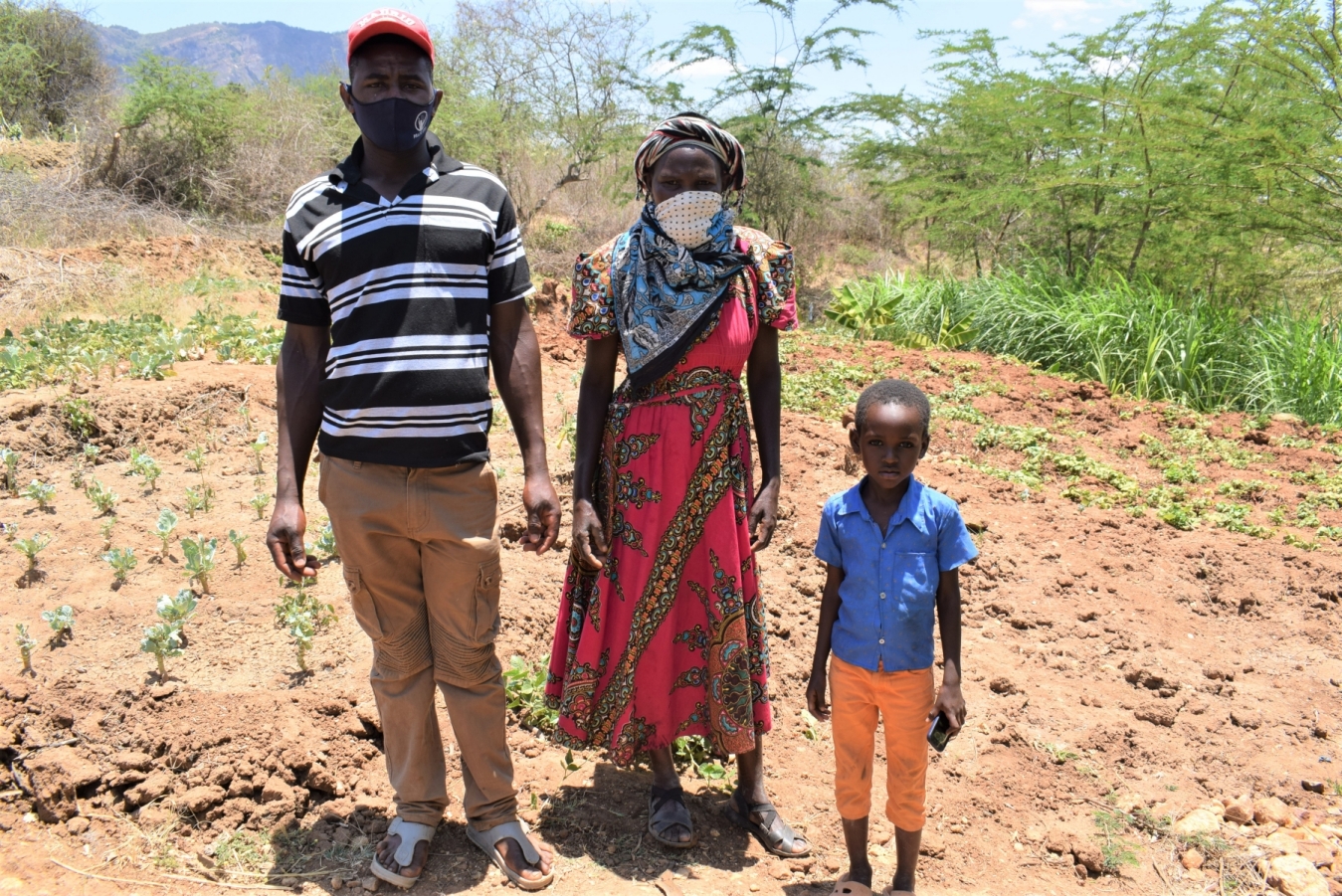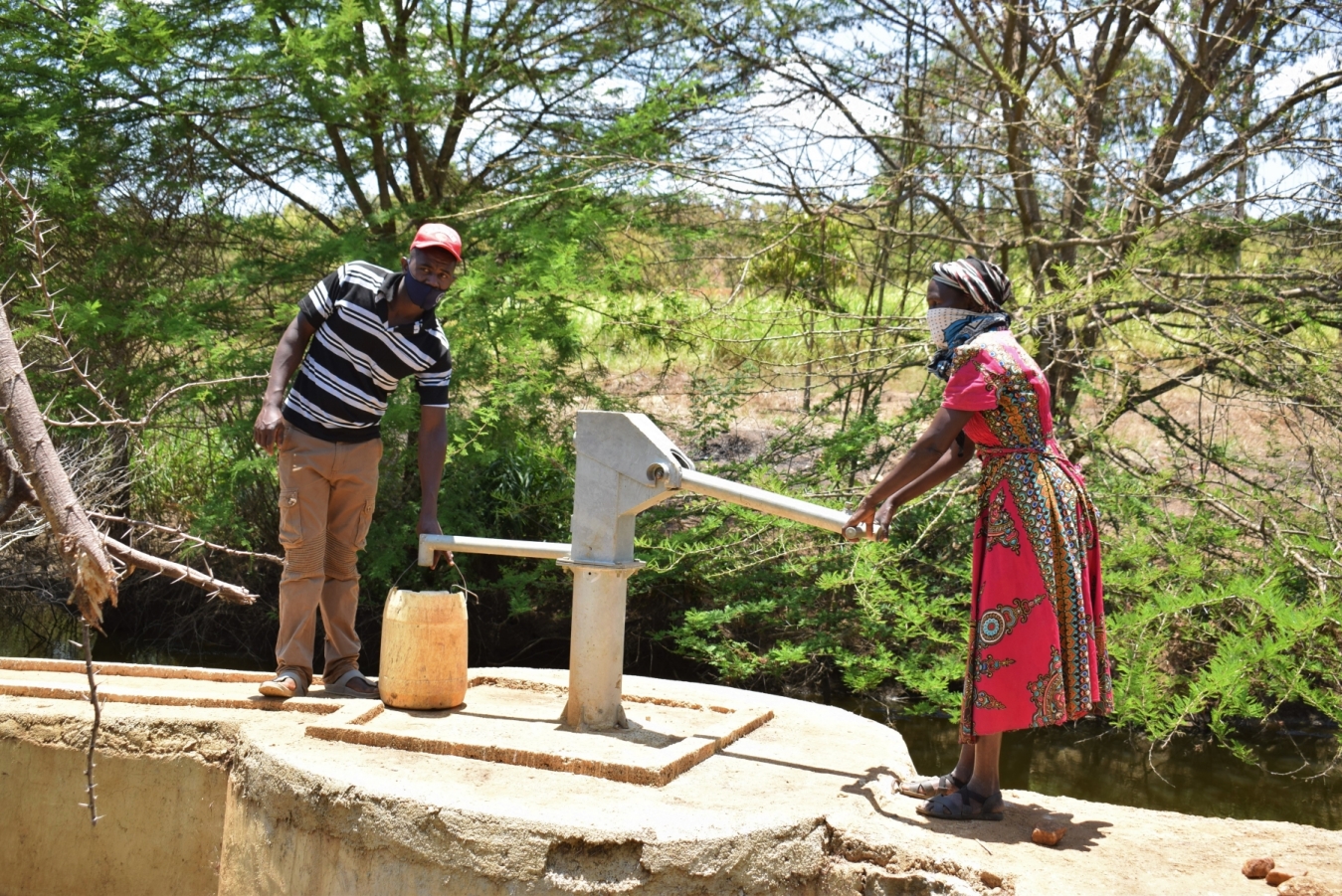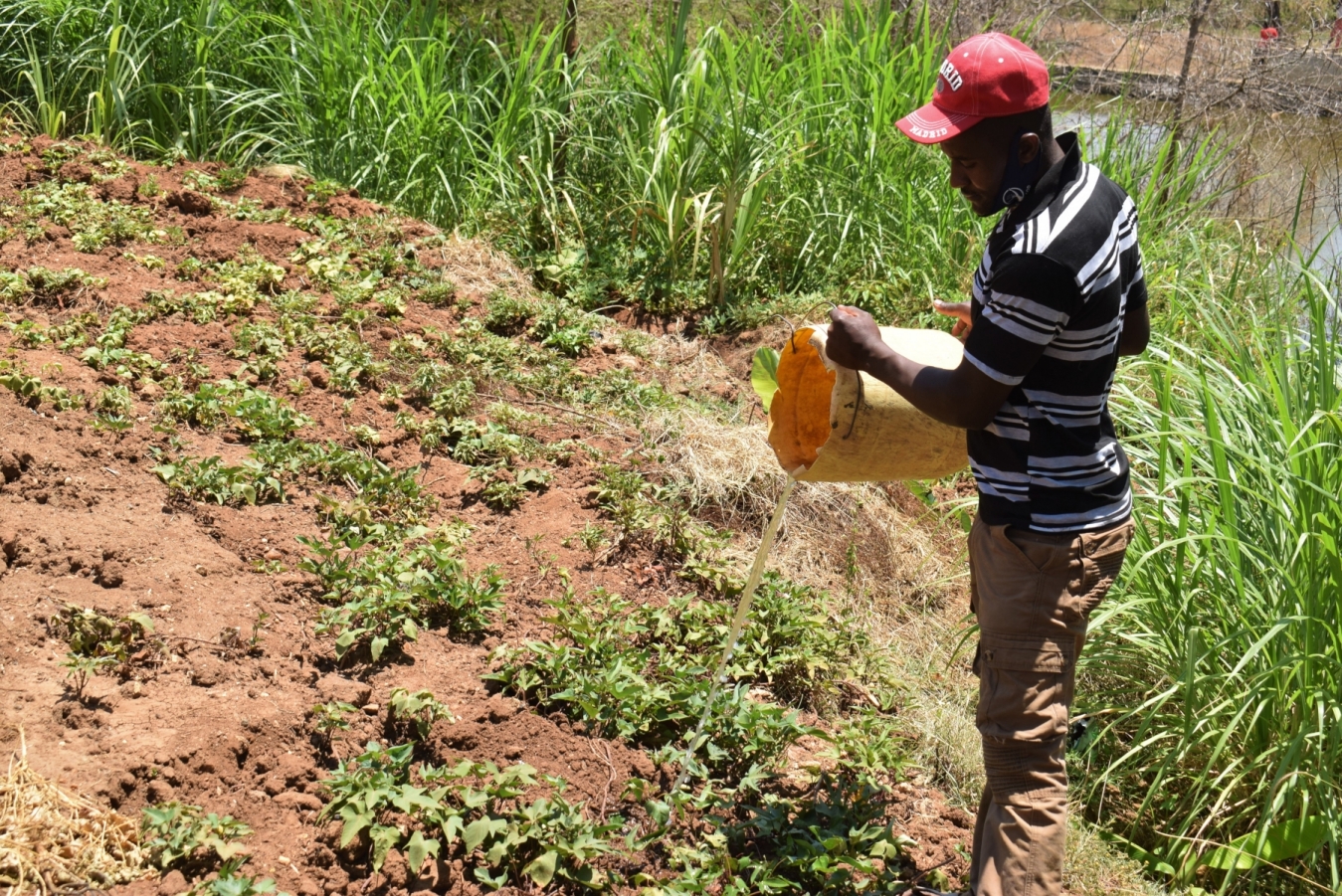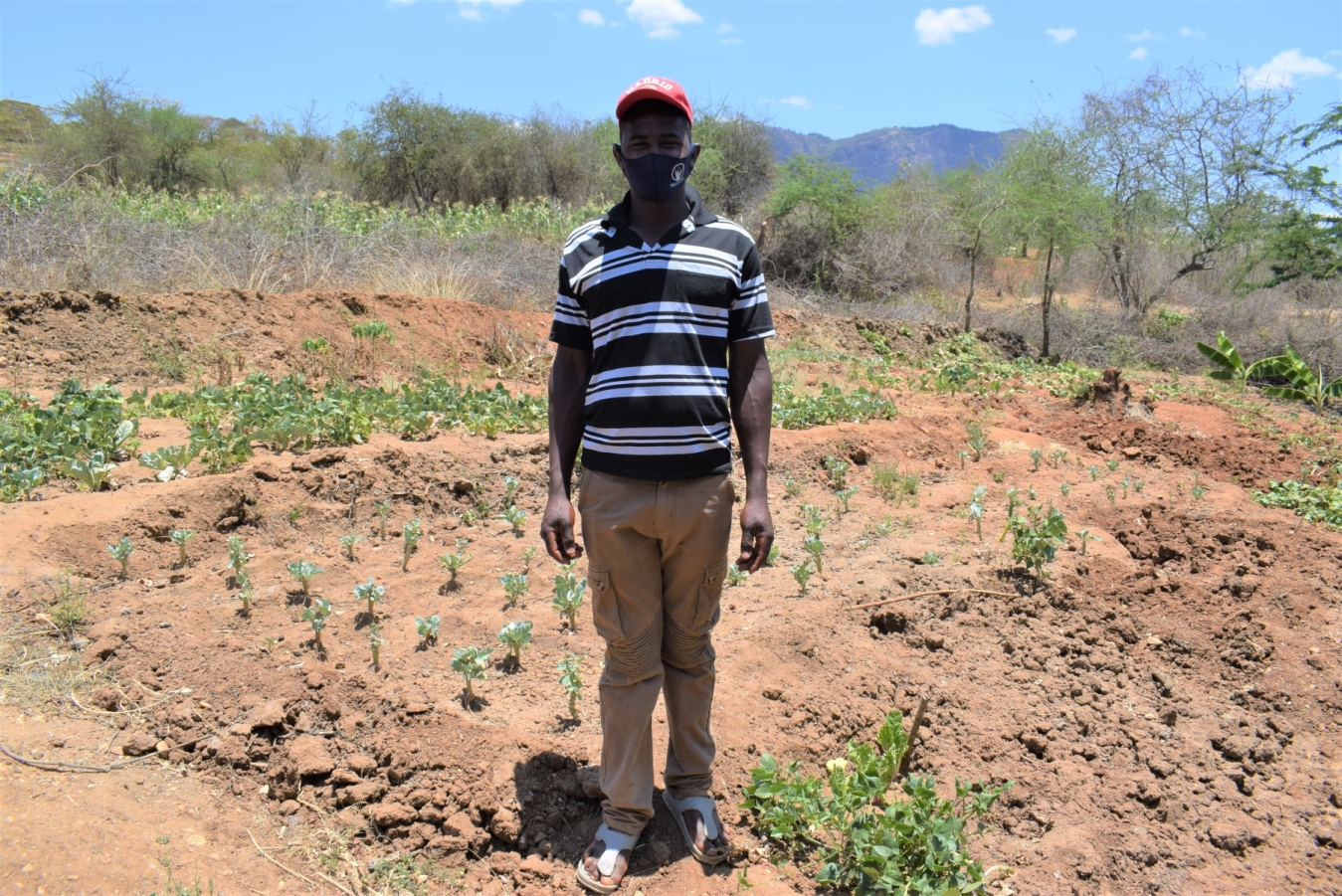Through Their Eyes: COVID-19 Chronicles with Matthew Mulandi

Matthew Mulandi and his family.
Our team recently visited the Kithumba community in Southeast Kenya to conduct a COVID-19 prevention training and monitor their well and dam. Shortly after, we returned to check in on the community, offer a COVID-19 refresher training, and ask how the pandemic affects their lives.
During this most recent visit, Matthew Mulandi shared his story of how the coronavirus is impacting his life and his community.
Field Officer Lilian Kendi met Matthew outside his home to conduct the interview. Both Lilian and Matthew observed physical distancing and other precautions throughout the visit to ensure their health and safety. The following is Matthew’s story, in his own words.
What is one thing that has changed in your community since the completion of the water project?
“A lot has changed since the installation of this water point. We have plenty of water to plant trees and vegetables such as kales, spinach, onions, and tomatoes for domestic use at our homes and for sale. Generally, farming projects have intensified thanks to this water project. Community members no longer have to walk for long distances to fetch water. This has enabled them to save more time to engage in other income-generating activities.”
How has having a clean water point helped you through the pandemic so far?
“Having a clean water point has helped us provide water for drinking, bathing, washing clothes, and other household uses at our homes.”

Since the outbreak of COVID-19 in Kenya, has fetching water changed for you because of restrictions, new rules, or your concerns about the virus?
“Yes, a lot has changed for me since the outbreak of COVID-19. Following the restrictions provided by the government, I have had to practice handwashing before and after using the shallow well’s hand pump, observe social distancing at the well to avoid contact, and wear a mask whenever I leave the house to go and fetch water.”
How has COVID-19 impacted your family?
“The economy has become unstable since the onset of the virus. Casual labor jobs are not well-paying as they were before, which has reduced the income earned at the household level. I had to send my wife and family to live with the extended family at my matrimonial home due to the changing times as I could not provide for them as consistently as I did before.”
What other challenges are you experiencing due to the COVID-19 pandemic?
“Our income is unstable due to the lack of jobs. The economy is still rocky hence making it hard for us to engage in businesses as usual. My daughter was to join school this year, but that is not possible due to its closure.”

Matthew watering his farm with water from the well.
What hygiene and sanitation steps have you and your community taken to stop the spread of the virus?
“We took the following hygiene and sanitation steps to stop the virus: wearing masks, social distancing, washing hands with soap and clean water, and avoiding crowded places.”
Like most governments worldwide, the Kenyan government continues to set and adjust restrictions both nationally and regionally to help control the spread of the virus.
What restriction were you most excited to see lifted already?
“There were age restrictions set when going to church, but they have been lifted, which has allowed all age groups to attend church. The elderly can now provide counsel to the young generation. The opening of the marketplace has allowed businesses to start picking up gradually.”

Matthew Mulandi
What restriction are you still looking forward to being lifted?
“I look forward to the opening of schools so that my daughter can officially join pre-school.”
When asked where he receives information about COVID-19, Matthew listed the radio and our team’s sensitization training.
What has been the most valuable part of the COVID-19 sensitization training you received from our team?
“Through this sensitization training, I learned the importance of handwashing at all times, social distancing, and proper hygiene and sanitation.”
This post is part of a new series by The Water Project meant to highlight the perspectives and experiences of the people we serve and how the COVID-19 pandemic is impacting them. We invite you to read more of their stories here.
Home More Like ThisTweet